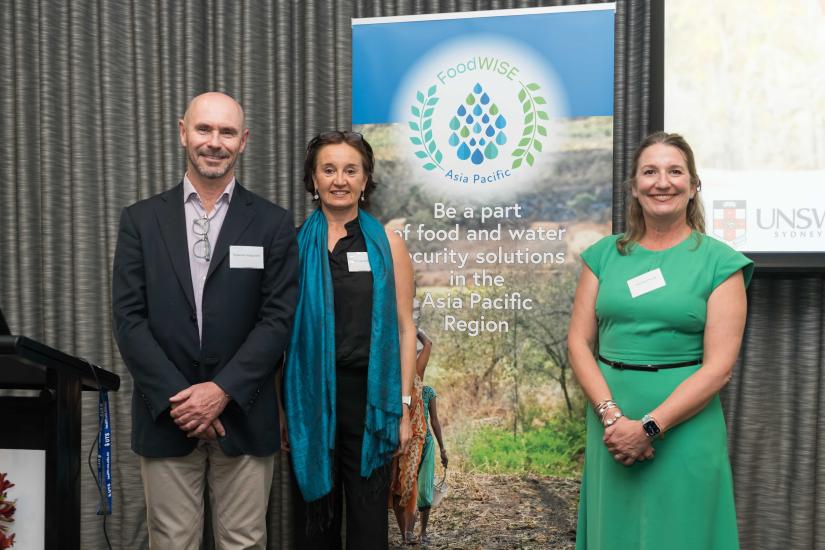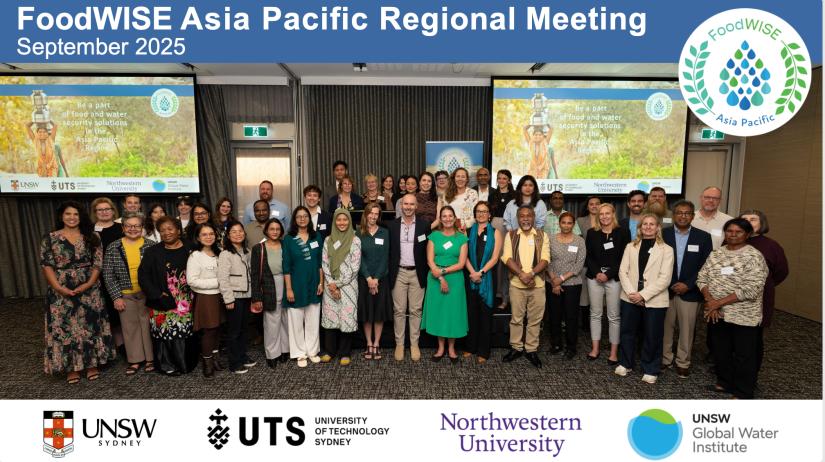Professor Jacqui Webster is an expert in developing preventative food policies to reduce cardio-metabolic diseases. Originally from the UK, Jacqui joined UTS six months ago after working at the George Institute for Global Health for 18 years.
Community-led systems approach to food and water security

Having started her research career working on food security for an NGO, Jacqui then joined the UK government and was asked to head up the UK Salt Reduction Program.
More recently her work has come full circle.
In 2018, Jacqui was invited by the Aboriginal community in Walgett to support them with advocacy around salty water. This inspired her current program developing systems change strategies to improve food and water security in Indigenous communities in Australia and the Pacific.
“The Walgett Food and Water for Life Project catapulted me back to my original passion for working on food security, which is really food and water security, given that there can be no food security without water security,” she said.
Data from our surveys is used to support community members to implement community-led programs of solutions such as community gardens, drinking water kiosks or food program with young people.
She says that one of the biggest concerns from poor water quality in Australia is that people can be spending up to $50 a week on bottled water, so there is not enough money available to spend on healthy food.
“Data from our surveys is used to support community members to implement community-led programs of solutions such as community gardens, drinking water kiosks or food program with young people,” Jacqui said, adding that the program of initiatives will be evaluated as part of the NHMRC funded project.
“This month (September), the government released national ABS food security data showing that about 13.2% of the Australian population were food insecure, demonstrating and that a national systems-wide strategy is needed to address this issue,” she said.

Jacqui’s work extends beyond Australia. She is also part of a multi-agency project that is using experiential measures for both food and water security across the Asia Pacific region. On 18th September she co-convened (with UNSW Global Water Institute and Northwestern University) the inaugural FoodWISE Asia Pacific network meeting at UTS.
“The network is dedicated to exchanging ideas, deepening our understanding and building shared solutions on food and water security in the region," Jacqui said.
We urgently need to address food and water security in the face of increasing climate threats across the region.
Half of the world’s food-insecure population – over one billion people – live in this region with South and Southeast Asia and the Pacific Islands the worst affected.
“We urgently need to address food and water security in the face of increasing climate threats across the region," she said.